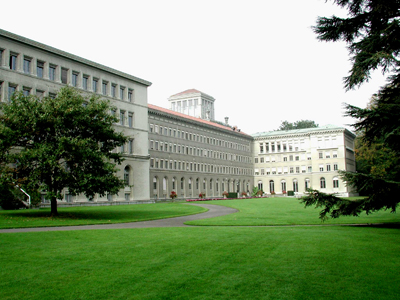Bryce Baschuk, Bloomberg
A series of U.S. renewable energy incentives violated international trade rules, according to the World Trade Organization, threatening to stoke tensions between the two countries as President Donald Trump prepares to meet Prime Minister Narendra Modi on Friday.
The WTO supported most of India’s allegations that the U.S. imposed illegal domestic content requirements that favored domestic products in the renewable energy sector, according to a ruling published on the Geneva-based organization’s website Thursday.
The ruling could further inflame U.S.-Indian tensions at a time when the two trade partners are engaged in an escalating tit-for-tat tariff battle. This month, India hiked duties on almost 30 U.S. products following the Trump administration’s decision to end a decades-old duty-free trade program aimed at supporting India’s economic development.
Trump said in a tweet Wednesday that he plans to discuss trade tariffs with Modi when the two meet at this week’s Group of 20 leader’s summit in Osaka, Japan.
I look forward to speaking with Prime Minister Modi about the fact that India, for years having put very high Tariffs against the United States, just recently increased the Tariffs even further. This is unacceptable and the Tariffs must be withdrawn!
— Donald J. Trump (@realDonaldTrump) June 27, 2019bytzwuaarcvedrybfxbqradvedtvaf
The office of the U.S. Trade Representative didn’t immediately respond to a request for comment.
The programs in question largely deal with state and local level incentive programs aimed at encouraging U.S. businesses and consumers to install solar panels on their properties and use other renewable energy resources like ethanol and bio-diesel.
The WTO panel said the various measures offered by Washington State, California, Montana, Connecticut, Michigan, Delaware and Minnesota violated the WTO’s national treatment principle because they were contingent on meeting domestic requirements.
WTO rules prohibit countries from imposing regulations that provide less favorable treatment to imported products than are offered to domestic products.
Either the U.S. or India may appeal the case within 60 days.
Annual goods and services trade between the U.S. and India totaled $142 billion in 2018, according to data published by the office of the U.S. Trade Representative.




